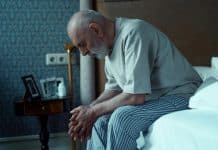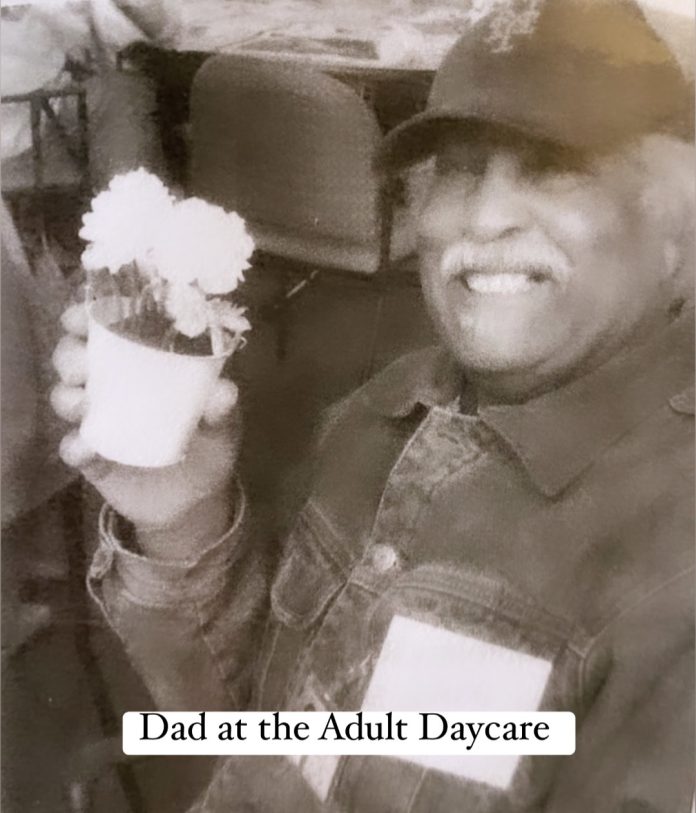What do you do when you have nowhere to hide from a family history of illnesses?
High blood pressure, high cholesterol, diabetes, and heart problems can be treated and monitored with medication, changing your diet, and regular doctor visits. However, Dementia and Alzheimer’s are game-changers.
Medications
for Dementia only help to improve dementia symptoms temporarily. They are cholinesterase inhibitors. These medications — including donepezil (Aricept), rivastigmine (Exelon), and galantamine (Razadyne), are known as memory enhancers. (https://www.mayoclinic.org › dementia Jun 17, 2021)
According to the Mayo Clinic, Alzheimer’s still has no cure, but two types of drugs can help manage symptoms of the disease.
The food and Drug Administration (FDA) has approved different types of drugs specifically to treat symptoms of Alzheimer’s disease. These drugs, Cholinesterase inhibitors and Memantine are approved for specific Alzheimer’s stages. These stages — mild, moderate, and severe — are based on scores on tests that assess memory, awareness of time and place, and thinking and reasoning.
Three cholinesterase inhibitors are:
Donepezil (Aricept) is approved to treat all stages of the disease. It’s taken once a day as a pill.
Galantamine (Razadyne) is approved to treat mild to moderate Alzheimer’s. It’s taken as a pill once a day or as an extended-release capsule.
Rivastigmine (Exelon) is approved for mild to moderate Alzheimer’s disease. It can be taken as a pill or used as a skin patch to treat severe Alzheimer’s disease.
Memantine for later stages
The FDA approves Memantine (Namenda) to treat moderate to severe Alzheimer’s disease. It works by regulating the activity of glutamate, a messenger chemical widely involved in brain functions — including learning and memory. Common side effects include dizziness, headache, confusion, and agitation. The FDA has also approved a donepezil and Memantine (Namzaric) combination, taken as a capsule. Side effects include headache, dizziness, nausea, and diarrhea. https://www.mayoclinic.org › Alzheimer’s May 21, 2022.
So enough about medications that only have temporary uses for serious, incurable diseases. I want to talk about how it feels knowing that both Dementia and Alzheimer’s are on both sides of the family and how to live with understanding it.
When my parents were planning to visit Memphis and Chattanooga, Tennessee, I never expected the changes that would alter how I think about my present or future life. Most of my father’s family lived in Memphis, which would be their first stop. After several days they would head to Chattanooga to see my sister Wintermoon and me before returning to Connecticut.
My mother called the night before they headed out, and I expected to see them by the end of the week. The drive to Memphis should have been easy breezy; my father had driven from Connecticut to Memphis route more times than I can remember. My parents loaded their three daughters into the car every other summer for one week of Memphis fun with my father’s family.
However, Mommy and Daddy would not complete the journey to Tennessee. They never even made it through New York before turning around and heading back to Stamford. As soon as my mother could call, she explained what had happened.
My mother said that my father could not navigate the drive when they arrived in New York. His conversation had become nonsensical. He talked about things at work as if they were happening right then. My father thought he was driving one of the vehicle from his job, telling my mother he had to get the truck back.
He had no idea where he was on a drive that he knew by heart. His tone had become combative. My mother tried to convince my dad to let her drive back to the house through it all. After telling her he knew where he was going, my mother was able to calm him down so they could get back home. Once he got closer to the house, he remembered where he was.
Not long after this incident, my mother was in the hospital. My dad was on his way to see her, and once again, he became lost. He started driving down a one-way street, was disoriented, and stopped by the police. It is evident to the officer that my father was confused; however, he wrote my dad a ticket before taking him to the same hospital where my mother was. When discharged, my mother went to court with my father’s summons. The Judge admonished the officer who wrote it for writing a ticket for someone having a medical episode. Now in his sixties, my father is been diagnosed with Dementia.
After moving to Tennessee, my dad always called me on my birthday, and I called him for his. He always joked he was twenty-nine and I was older than him. As time went on, I realized my conversations with my father were changing. He was repeating himself. He would suddenly stop talking while on the phone. He stopped calling me on my birthday. When we did talk, he would lose the topic of our conversation. He forgot the names of friends and their conversations. Our conversations would never be the same. By the time he was seventy-six, he had been diagnosed with Alzheimer’s.
My dad understood me more than my mother. I was a daddy’s girl. So much so that he could have given birth to me. There was so much about me that was my father. We looked alike, behaved alike, and knew each other’s thoughts without saying them aloud. My dad would do anything for his daughters. Now we were losing him to a disease that had no cure.
After a while, my mother had to place him in adult daycare while she went to work. She cared for him until she could no longer do so, which led to a nursing home. In September of 2013, I knew my dad was not doing well, and I decided I needed to see him.
He was in the hospital, and when I saw him, it looked like he was wearing white boxing gloves on his hands. My mother explained they were for his protection because he pulled out the IVs. His arms were flailing, and his eyes were dazed. He didn’t speak. I do not know if he knew I was there. However, I told myself he did know.
It was hard seeing the man who did so much for his daughters, so much for me when I needed his help. He was a far cry from the giant I knew as a little girl. I know it had to be especially hard for my youngest sister. She lived there and watched our father’s decline. Out of the three of us, Connie saw it all. I know it was most challenging for her.
Before leaving my father, I leaned into his ear and whispered that I loved him. His eyes stared past me as if I was not there. Yet, I knew somewhere in his mind he had heard me. I needed him to know that I loved him. He needed to understand before I lost any chance to tell him. In January 2014, my father lost his fight with Alzheimer’s. That was when I learned to hate that disease.
I was already familiar with this disease to some extent because my mother’s father (Papa) had been diagnosed with it after my grandmother died. Rhonda, who my grandparents adopted at birth, was still living at home with my grandfather. She would tell my mother about the strange behaviors their father was presenting.
He would tell Rhonda about voices coming from the walls. He began misplacing things all the time and then swearing she took or hid the items he lost. He created arguments out of nothing. Once, we found an unopened package of ground beef in the dresser drawer that he swore someone had stolen. Other missing items might be in the pockets of a jacket hanging in the closet. It was never-ending.
My mother took her father to see a doctor about his behaviors and memory loss. However, my grandfather managed to complicate things once he was with the doctor. He was somewhat aware of why he was meeting with the provider, and like so many of the clients I have had to assess for mental illness, he denied everything with a smile.
He managed to convince the doctor that there was nothing wrong with him. So, his doctor could not provide the appropriate diagnosis despite knowing my mother had provided all he needed to say; Dementia had started. All my mother could do was take him back to his apartment.
Eventually, my grandfather started walking the streets around one to three in the morning with a loaded gun. Although the gun was old and not able to fire, we all were concerned. If he had ever pointed the gun at someone, they would not know it may not have worked. He was walking around the drug and gang-infested neighborhood without fear.
Everyone out at that time of morning would most likely have a gun. Now it is getting dangerous for my grandfather to live at home. His behaviors were becoming too scary, and his memory deteriorated fast. Even a doctor no longer required my grandfather’s cooperation to provide an Alzheimer’s diagnosis.
My mother began to look for nursing homes for her father. Once my mom found a nursing home, we went for a visit. It wasn’t very nice. It reminded me of scary nursing homes in the movies. Older people are sitting and staring at nothing from their wheelchairs in the hallways, overly medicated. My grandfather had little to say; he did not like this place. My mother decided that this was not the place for her father. However, this nursing home was a safe place for now. Within the year, my grandfather was in a better nursing home.
When I decided to move to Tennessee, I visited my grandfather before leaving. I looked at Papa and explained I wanted to see him before moving. He looked at me, his oldest granddaughter, and asked, “Who are you”? My grandfather hurt my feelings. I had to remind myself that it was the Alzheimer’s talking, not my Papa. My mother called me to tell me he had passed away within a few years. Alzheimer’s had won the battle.
So, where does this leave my sisters and me? Once upon a time, I thought Dementia and Alzheimer’s would skip a generation. However, in our case, our mother’s father had both, and our father had both. That cancels out any possibility of missing a generation. I am aware that both parents have the APOE gene, and it comes in three forms: e2, e3, and e4. Each gene will pass to the children. However, that does not mean any one of the three of us will get the disease.
The APOE gene provides instructions for making a protein called apolipoprotein E. This protein combines with fats (lipids) in the body to form molecules called lipoproteins. Lipoproteins are responsible for packaging cholesterol and other fats and carrying them through the bloodstream. https://medlineplus.gov ›Genetics › Genes, Mar 29, 2021)
Since the risk increases when at least one or both parents get Alzheimer’s, the risk is increased even higher if a sibling also gets the disease. Recently my sister Wintermoon told me that my father’s brother has Dementia, and their sister might have it.
I frequently wonder if one or both of my sisters or all three of us will be the next victim of these awful diseases. Just thinking about it isn’t very comforting. I try to convince myself that if I were to get it, at some point, I might not know it, and so be it. Every time I forget something, I think it is the start of Dementia. If I cannot remember the directions to a place, I have the onset of Dementia. It scares me.
I asked my sisters, Wintermoon and Connie, some questions about their thoughts on possibly one of us being diagnosed with Alzheimer’s.
They both think about it. Both are aware that multiple siblings can get it. Connie is more like me, thinking about it while praying it never happens. Wintermoon tries not to stress over it. Her doctor told her there was a test to provide information about her chances of getting either Dementia or Alzheimer’s. He stated that having the gene does not mean you will get either. So, he does not recommend taking the test due to increased anxiety waiting for it to happen or not happen. Connie is afraid if she found out she tests positive to have Alzheimer’s, she would be depressed and dread getting any older.
The three of us share information that we find all the time. I think we are constantly looking for a cure before we get it or not. We all have put more thought into what we eat and keep our minds active with brain games, puzzles, and forms of exercise. That’s something that my grandfather and father did not do.
My sister Connie who went through our father’s illness, saw his mind reverted to a childlike state and has a higher sense of fear of ending up like our dad. The thought of ending up like him is disturbing, she says. She is also conscious of the illness whenever she forgets things. She has not talked to her children about Dementia or Alzheimer’s at this time.
Wintermoon has talked to her son out of fear of becoming a burden on him if she does end up on the path to Alzheimer’s. However, she seems to be the least stressed about it. She believes like our mother; I only worry about the things I can change.
Before I started to write this article, I found out that my boyfriend’s mother had also died from Alzheimer’s. In the six years that we’ve been together, he has never mentioned this to me before. It was very hard for him, and he was reluctant to talk about it at first.
Once he was willing, he told me there were feelings of helplessness watching her as she deteriorated each day. Once her situation was no longer deniable, he helped her as much as possible by playing the guitar and singing to her. He said that when he sang songs to her, her eyes would become bright.
His mother would soon be in a nursing home, where she lived for three years before she died. It was so painful to him, and he avoided talking about it, at least out loud. He also avoids thinking about the possibility of getting Alzheimer’s himself.
Anyone who knows someone with Alzheimer’s understands this is a life-altering and devastating illness. It is heartbreaking to watch a loved one lose all their precious memories and return to infancy.
This disease took away my grandfather’s memory of buying my first African American baby doll before coming out of my mother’s womb. I still have this doll. This disease made him forget his first granddaughter’s name. This illness took away the father, who ensured his children had everything they needed. It took away the man who taught me how to drive, change a tire and change the oil in my car. Alzheimer’s made the last memories of my grandfather and father unhappy ones.
I don’t think a day goes by that does not remind me that I might be experiencing symptoms of this scary illness, even if they are not the symptoms. I know that I have lived in fear of both Dementia and Alzheimer’s since my father’s death. I spend too much time wondering what I will forget versus what I will remember and how soon all my memories will be gone. Then I have days to tell myself and convince myself that any forgetfulness is just the usual signs of aging. After all, I will be sixty-four in December.
Alzheimer’s is the disease that scares me because it ravishes the brain and destroys precious memories. It takes once independent-minded adults and turns them into dependent babies. Just knowing this alone keeps me in eternal fear. I pray every night that it bypasses my sisters and me. I pray for a cure for everyone in its path.
For further information:
Alzheimer’s: Drugs help manage symptoms – Mayo Clinic
Dementia – Diagnosis and treatment – Mayo Clinic
APOE gene: MedlinePlus Genetics


























